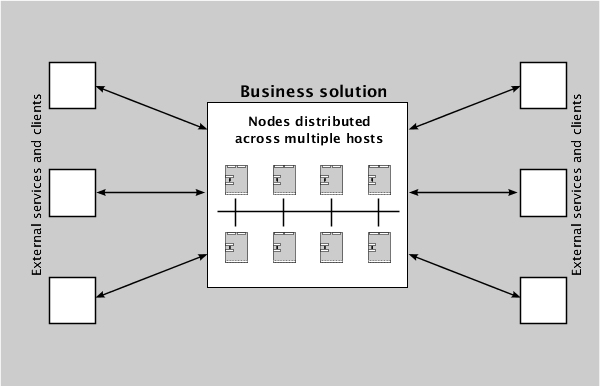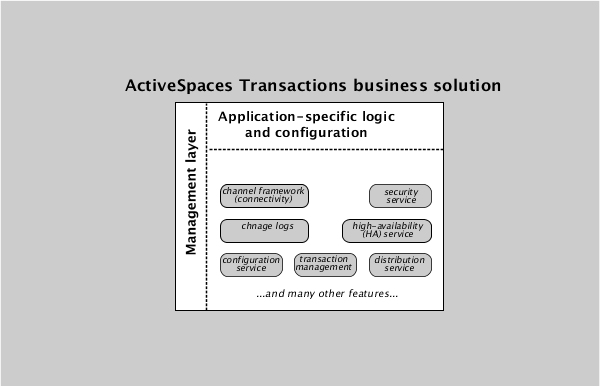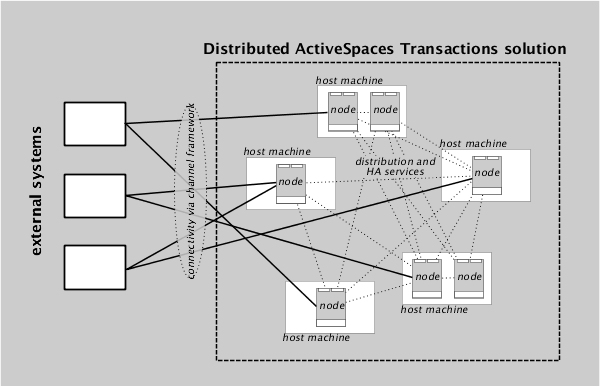This section introduces the general features of a ActiveSpaces® Transactions application.
An ActiveSpaces® Transactions application forms part of an enterprise system as shown in Figure 2.1, “ActiveSpaces® Transactions application in context”. The entire enterprise system is a business solution. It may consist of one more more ActiveSpaces® Transactions applications.
Some important properties of applications:
distribution: transaction processing can be distributed transparently across various machines
high availability: if one machine fails, processing of in-flight transactions can continue uninterrupted on another machine.
flexibility: applications can be upgraded with changed or entirely new behavior without stopping transaction processing
extensibility: additional features or solutions can be deployed onto a running ActiveSpaces® Transactions system
configurable behavior: applications are highly configurable; much of their behavior can be changed by configuration alone; there is support for configuring multiple machines atomically
An ActiveSpaces® Transactions application can be distributed across a local or world-wide network; nodes within the application publish their existence using a discovery service; they inter-operate according to the configuration that you load onto them.
An application is deployed as a number of nodes; nodes may be on the same machine or on different machines. A node is a container for JVMs in which an application executes. A node provides part or all of an application's functionality.
The concepts of node and application are described in more detail later in this chapter.
ActiveSpaces® Transactions applications are built on top of the ActiveSpaces® Transactions platform. This provides many services such as:
transaction management
transparent distribution of data and processing
a robust security model
high-availability and distribution
configuration service
channel framework to provide connectivity to external systems
A management framework is also part of the platform, and provides monitoring and control of the platform as it executes applications.
The application is constructed as one or more nodes running on top of ActiveSpaces® Transactions . While ActiveSpaces® Transactions provides a set of powerful capabilities, it is the combination of the application-specific logic and configuration that define the actual behavior of the business solution, as shown in Figure 2.2, “Layers of an application”.
Notice that Figure 2.2, “Layers of an application” shows the management layer across ActiveSpaces® Transactions , but also across the application-specific part of the solution as well. This is because the management framework extends to the entire application, so you can control the entire application in one consistent way.
When an application is deployed and running, it consists of a network of ActiveSpaces® Transactions nodes, one or more to a host computer. They are interconnected by the distribution services, and are connected to external systems via the channel framework. This network is shown in Figure 2.3, “A network of nodes”.
The goal of this section has been to provide a brief glimpse of the overall context of ActiveSpaces® Transactions applications. The remainder of the chapter goes into more detail about the elements involved and what can be managed in those elements.


